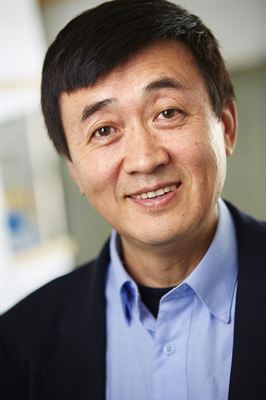New knowledge about anemia and fatigue in cancer patients

[PRESS RELEASE 10/10/2014] Many patients with cancer experience low blood counts, which causes weakness and fatigue. Researchers at Karolinska Institutet in Sweden and colleagues from China and the UK have discovered how a tumour affects a patient’s blood count and bone marrow characteristics. The study has been published online in the scientific journal Cell Reports.
A low blood count, or anemia, is common in cancer patients and causes considerable fatigue. Anemia is sometimes caused by patients taking cytostatic drugs, which also kill healthy cells including red blood cells. But cancer in itself also affects the blood count and there is a lack of knowledge about the causes of this phenomenon. Researchers have now succeeded in mapping out an important mechanism which explains how a tumour manages to affect a person’s blood count and bone marrow characteristics.
The key components in this context are VEGF, a protein, and VEGF-2, a receptor. VEGF, Vascular Endothelial Growth Factor, a signal protein produced by the tumour which plays a key role in angiogenesis, i.e. the formation of new blood vessels. An existing treatment method for cancer is to cut off the tumour’s VEGF production, thereby preventing it from forming new blood vessels. But there is still a large gap in the knowledge about VEGF and its significance for cancer.
“We have contributed one piece of the puzzle by showing that VEGF is important not only at micro level, i.e. for the tumour’s growth in its immediate surroundings: VEGF is also important at macro level, for how the tumour manages to function as a systematic disease and affect the central functions of the body as a whole, such as the formation of new red blood cells,” says Yihai Cao, Professor at the Department of Microbiology, Tumour and Cell Biology at Karolinska Institutet.
The researchers hope that this new knowledge will make it possible to treat reduced blood counts in cancer patients, which would have a major impact on the life quality of the patients. One hypothesis to be addressed in upcoming studies is that the blood count could serve as a marker for identifying patients that would benefit from the VEGF-inhibiting cancer drugs that are already available in the market. According to the researchers’ hypothesis, patients whose blood count is improved by the treatment would benefit greatly from it. This has yet to be investigated and the researchers intend to investigate it in future studies.
In an another study that is newly published in Nature Communications, Professor Yihai Cao’s research team has, in experiments with mice, been able to see how VEGF together with TNF, another protein, affects the blood vessels in tissue. Researchers have discovered a previously unknown form of interaction between these proteins which causes an increase in metastatic spread, a process which is often the cause of a patient’s death.
The studies are funded by the Swedish Research Council, Swedish Cancer Society, Karolinska Institutet, Torsten Söderberg Foundation, Novo Nordisk Foundation, European Research Council and the Tianjin Natural Science Foundation.
Publications:
- 'VEGFR2-mediated vascular dilation as a mechanism of VEGF-induced anemia and bone marrow cell mobilization', Sharon Lim, Yin Zhang, Danfang Zhang, Fang Chen, Kayoko Hosaka, Ninghan Feng, Takahiro Seki, Patrik Andersson, Jingrong Li, Jingwu Zang, Baocun Sun and Yihai Cao, Cell Reports, online 9 October 2014, publishing in 23 October 2014 issue.
- 'NFR1 mediates T NF-α-induced tumour lymphangiogenesis and metastasis by modulating VEGF-C-VEGFR3 signalling', Hong Ji, Renhai Cao, Yunlong Yang, Yin Zhang, Hideki Iwamoto, Sharon Lim, Masaki Nakamura, Patrik Andersson, Jian Wang, Yuping Sun, Steen Dissing, Xia He, Xiaojuan Yang and Yihai Cao, Nature Communications, online 17 September 2014, doi:10.1038/ncomms5944.
For more information, please contact:
Yihao Cao, professor
Department of Microbiology, Tumour and Cell Biology, Karolinska Institutet
Tel: +46 8 524 875 96
E-mail: yihai.cao@ki.se
Contact the Press Office and download images
Karolinska Institutet is one of the world’s leading medical universities. It accounts for over 40 per cent of the medical academic research conducted in Sweden and offers the country’s broadest range of education in medicine and health sciences. Since 1901 the Nobel Assembly at Karolinska Institutet has selected the Nobel laureates in Physiology or Medicine.
Tags:


